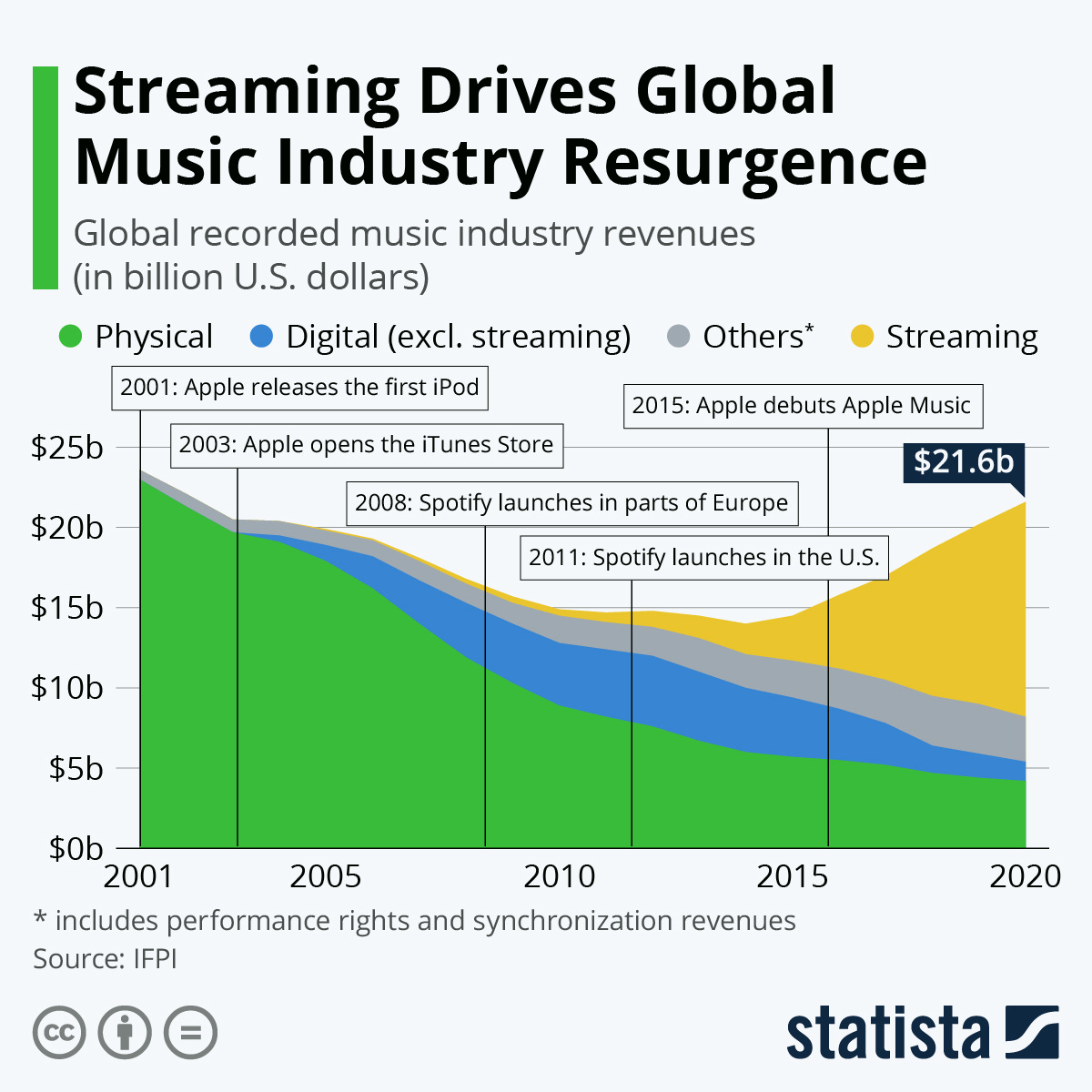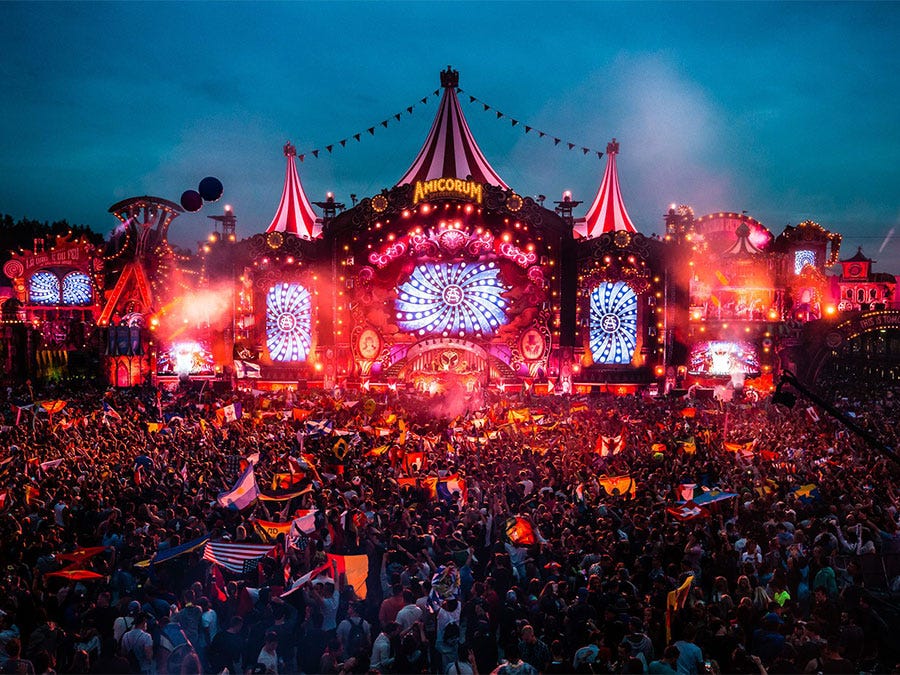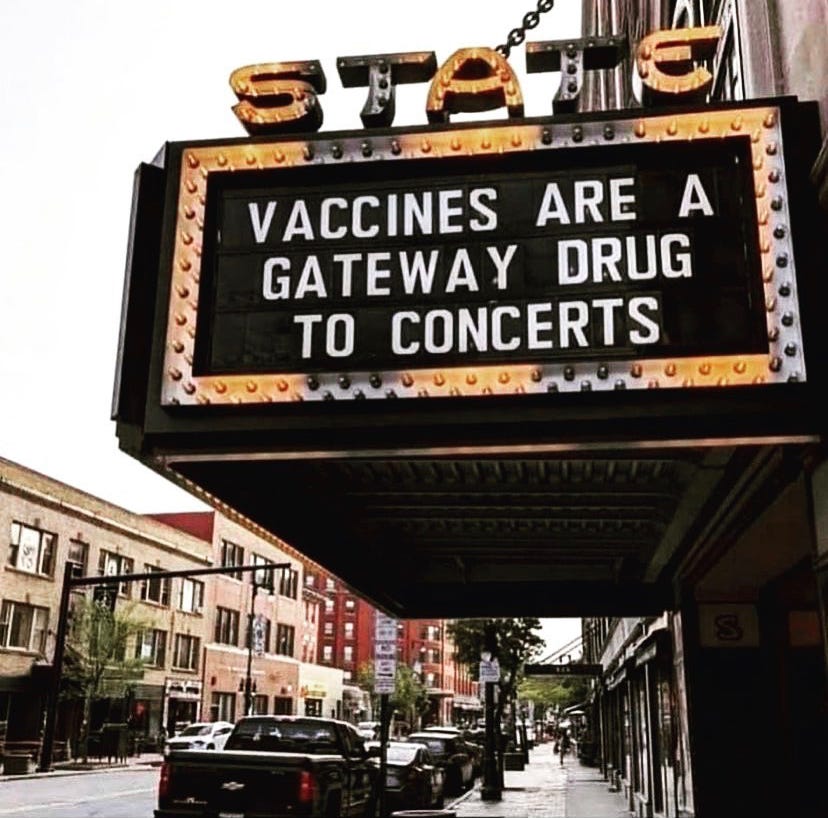What's the Future of Live Music?
In today's edition, we talk about the inevitable return of live music along with the possibility of VR replacing the business.
We write a daily newsletter on all things Music, and the Business and Tech behind it. If you’d like to get it directly in your inbox, subscribe now!
Hi Everyone!
In one of the earlier editions of this Newsletter, we covered how live music is slowly starting to make a comeback, with the rise of pilot festivals and club events in the UK. Since then, as a bunch of other countries have started opening up, many more tour dates and music festivals have been announced.
In general, music industry revenues have held up relatively well compared to other industries during the COVID-19 pandemic.
The growth of digital streaming has allowed consumers to access and enjoy music regardless of the global lockdown.
However, other forms of music consumption, especially live events and shows, have suffered due to social distancing norms.
Things are looking up now though, after months of quarantine and vaccinations, artists like Guns N’ Roses, Queen, and Red Hot Chili Peppers announced their tour dates for 2021 and 2022.
Despite that, multiple big-ticket festivals such as Coachella and Glastonbury still remaining canceled for yet another year. So is it safe to assume that live shows are back in business?
Let’s get into it 👇
The past year has been utterly devastating to the music industry generally, and live music in particular.
Artists who make a living touring have been forced to find alternative ways to make ends meet, while those among us who once frequented live events have been looking for ways to plug the hole created by wide-scale shutdowns.
Simply put, the Live Music industry is hanging by a thread:
The live music industry saw a 75% decline in 2020
The UK saw 85% revenues dip and 170,000 job losses in the live music industry
Due to COVID-19, up to $9 billion in losses could be potentially realized in the U.S. concert industry
Although things are looking grim right now, the live music industry had surpassed $28 billion in revenues, earlier in 2019. So it is safe to say that the live music industry may have taken a hit, but things will start looking up in no time?
Check out these revenue projections 👇🏻
If you made it this far, seems like you’re digging our content! Please share this and help support us!
What’s my point?
Although things are pretty grim as of now, the live music industry is slated for a comeback like no other, with people motivated to get vaccinated and get their normal lives going.
This street sign in New York is a perfect testament to that 💉
Plenty of artists, businesses, and organizations have also tried to fill the live music gap in people’s lives, with live streams, virtual gigs, and even AR / VR experiences, but these have been met with mixed success.
Check out these numbers for the live streaming market of music, which had an uptick because of the global lockdown 👇🏻
This begs the question🤔
Can VR forms replace actual Live Shows? Well, the answer is, to an extent, Yes.
While VR chat lobbies and games have provided an immersive experience in the field of video games, real-life cannot be fully recreated in the technology form. A big factor that goes into VR is wanting to enter a fictional world.
What could be the next big thing for VR is mixing these fictional worlds together with the concept of live music and creating an out-of-the-world VR experience.
Some exceptional use cases of VR have been:
The Weeknd
The Weeknd streamed his concert, known as “The Weeknd Experience” through Tik Tok. More than 2 million people streamed the live performance, and the event raised $350,000 for the Equal Justice Initiative, a non-profit organization committed to ending mass incarceration in the U.S.
Travis Scott
The American rapper, held his first Fortnite (the popular video game) concert last year. The concert was only 15 minutes long, but the virtual experience is something you can’t experience in real life. The graphics and aesthetic of the concert were visually stunning.
But when we look at these cases, it is to be kept in mind that these artists already have a huge following and could therefore score good numbers in their live streams.
It is still tough for indie artists or up-and-coming musicians to match the connection with fans which is provided by performing live at a pub or physical live event.
Our take on this?
While Live shows are irreplaceable, there is no denying that with the advancement of technology comes change.
The positive response of fans to virtual concerts just goes to show that the scale of the Internet remains unparalleled. While it is tough to match the live music experience, it opens up possibilities to get a very similar experience across every corner of the world, something which was unimaginable 10 years ago.
As far as Live Music is concerned, I think the industry will migrate towards a hybrid model of live music and integrate the VR aspects of it to achieve scale and even target those who cannot be physically present there.
Imagine having a VR experience for the Live Aid concert in 1985. How cool would that be? 🤩
If you liked this newsletter from Incentify, why not share it with someone you like?
P.S- Follow us on Instagram and Twitter for more such content on all things Music and Culture, now!









